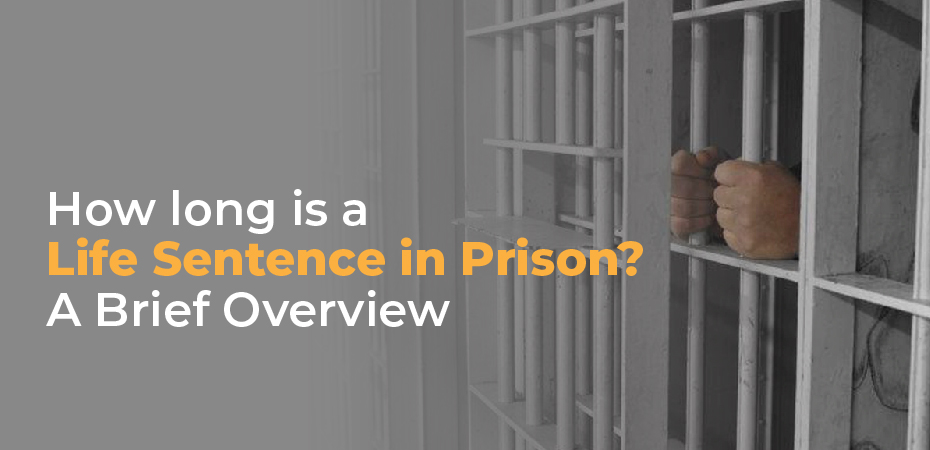How long is a life sentence in prison? If someone has been convicted of a crime, their sentence can seem rather random when it is time to receive their punishment. Judges have very little power when it comes to sentencing, whether we like it or not. Most of the laws in the federal criminal code – as well as the majority of laws in a state’s criminal code – include sentencing guidelines.
Accordingly, when you are convicted of a crime, you are sentenced according to the guidelines attached to your specific charge. A controlled substance was manufactured by me, and I was convicted of the crime. Additionally, I was convicted of possession of a controlled substance with the intent to distribute. They were both considered “B” felonies in the state of Missouri at the time.
In the case of a “B” felony, I would receive a sentence between five and fifteen years. Despite being a first-time nonviolent offender, the judge in my case granted the prosecutor’s request for a maximum sentence on both charges.
As a result, when I was arrested and found with 12 marijuana plants in my house, I was sentenced to 30 years in prison (two 15-year sentences running concurrently).
Life in prison is the attached sentence to some crimes. For example, if someone is convicted of murder, they will spend the rest of their lives in prison. When someone is convicted of killing more than one person, they may be sentenced to more than one life sentence.
People who are convicted of three crimes (no matter how violent or nonviolent they are) are subjected to a mandatory life sentence as repeat offenders in states with a “three strikes” law. Despite the fact that many of these draconian laws have since been repealed, people are still serving time under them.
The topic of today’s post is: how long is a life sentence in prison?
This blog post will discuss the following topics:
- What happens if you go to prison for life?
- Why do some people get multiple life sentences?
- The rules are complex
- If I get life in prison, what happens to my money?
What happens if you get life in prison?
Depending on the person, a life sentence can last anywhere from 15 years to the rest of their natural lives. Murder is often punishable by a life sentence without the possibility of parole for violent crimes like this. There is no doubt that the criminal will die behind bars because this is a true life sentence.
Depending on the jurisdiction, some life sentences may be commuted to parole after a certain number of years, such as 15, 25, or 40. When a person is sentenced with parole possibilities, they must serve the minimum time required by the law under which they were convicted. Once they have served the minimum time, they can apply for parole. However, parole is never guaranteed in that case.
When it comes to life sentences with the possibility of parole, the laws are all over the place. Depending on where the crime was committed, and how severe it was, the laws vary.
Why do people receive multiple life sentences?
Due to the fact that giving someone, a life sentence does not always mean the convicted person will spend the rest of their life behind bars, judges may in certain cases give someone multiple, consecutive life sentences.
It usually happens when there are multiple victims in a murder case. At some point, the judge will examine the crime committed and decide whether or not the defendant should be paroled back into the community.
Thus, if someone is convicted of two separate murders and each comes with a life sentence with the possibility of parole after 20 years, sending the person to back-to-back life sentences will ensure that the person will spend at least 40 years behind bars. Make sense?
Let’s take a look at an example that does not involve murder. Before his arrest in February 2001, FBI Agent Robert Hanssen spied for the Soviets and Russians for decades.
Hanssen made an estimated $1.4 million during his career as a Soviet spy by revealing the identities of American undercover agents overseas, documents showing the U.S. intercepted Soviet satellite transmissions and the method by which the U.S. would retaliate if a nuclear attack were launched.
An indictment for spying led to him being charged with 21 counts, and he initially pleaded not guilty to all charges. Hanssen, however, agreed to a plea deal that included fifteen consecutive life sentences in order to avoid the death penalty. The fact that he had to serve at least 200 years before he was eligible for parole ensured that he would spend the rest of his life behind bars.

The rules are complex
Most states have a very complicated system of sentencing for crimes, especially when it comes to life sentences and parole eligibility. States generally divide life sentences into two categories. As we discussed earlier, there are crimes with life sentences that are eligible for parole, and there are others that are not.
There is also the issue of when the crime was committed since laws are constantly changing. According to Georgia law, a parolee – a person serving a life sentence for a serious violent crime like murder or rape – who commits a crime before July 1, 2006, is eligible for parole after 14 years.
However, those convicted of those same violent crimes after July 1, 2006, are not eligible for parole until after 30 years behind bars because of a change in state law. The Georgia parole system allows life-sentenced felons who commit a drug crime to apply for parole after seven years. Again, these laws aren’t set in stone, so they can change. Not in Georgia, or anywhere else.
How does your money fare if you go to prison for life?
Almost nothing will happen to someone’s money, property, or assets when they are sentenced to life in prison, with the exception of a few specific types of crimes.
You are still responsible for your financial obligations when you are arrested and sent to prison. Even if you don’t pay your rent or Netflix subscription, you are still legally responsible for those bills.
You can give someone you trust power of attorney or hire an attorney to handle your finances if you are sentenced to life in prison with money in your bank account or assets to be sold.
The inmate can keep their money once they have paid all of their court fees, fines, and bills associated with their case, and it will be deposited into their prison trust account. This will allow them to purchase items from the commissary, such as clothing and hygiene products.





